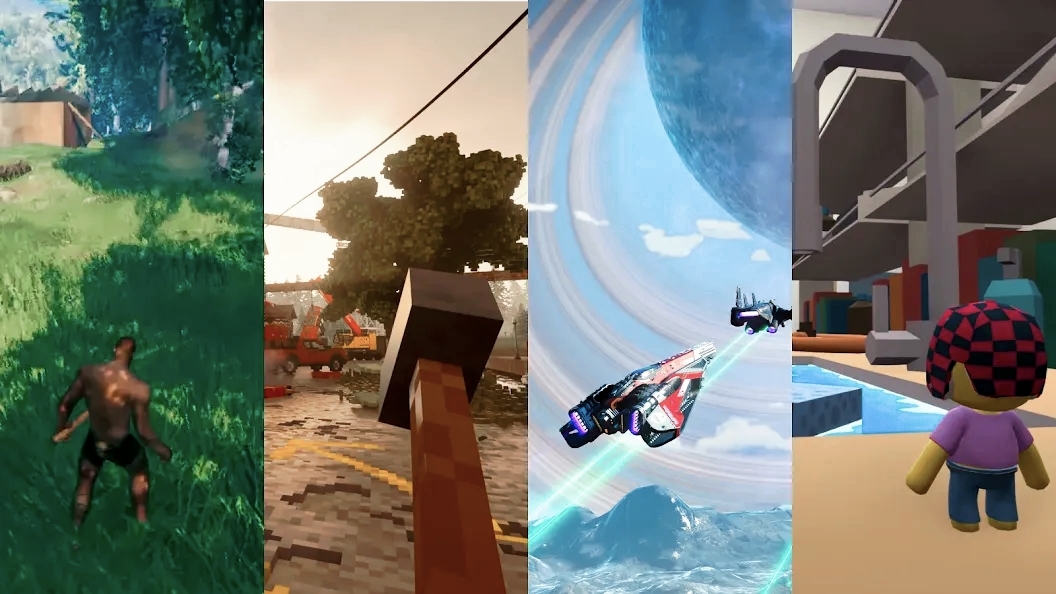In its ongoing quest to expand the possibilities of artificial intelligence, Google DeepMind has announced a groundbreaking achievement: an AI agent called SIMA, short for Scalable Instructable Multiworld Agent, capable of playing video games at an unprecedented level.
Google DeepMind SIMA
From classic games to open worlds:
SIMA was trained on a wide range of video games, from classic 2D games like Sonic the Hedgehog and Super Mario Bros to complex 3D games like Valheim, No Man’s Sky, and Goat Simulator.
Deep learning techniques were used to provide SIMA with a deep understanding of game mechanics, allowing it to make strategic decisions and take precise actions in real time.

Adaptive AI:
SIMA’s ingenuity is not limited to following programmed instructions. It has a unique ability to adapt to the game environment and learn new skills. It can analyze information from its surroundings, such as the locations of items and enemies, and adjust its strategy based on changing conditions.
Vast potential:
SIMA’s achievement opens up vast possibilities for AI applications in the video game industry. It can be used to:
• Enhance gaming experiences: by providing virtual assistants to players, offering strategic advice, and creating more interactive game worlds.
• Test video games: SIMA can test video games more efficiently by playing them repeatedly and identifying bugs and issues.
• Develop new AI techniques: SIMA can be used as a platform to test new AI techniques, such as reinforcement learning and deep learning, in an interactive environment.
Concerns and challenges:
The use of AI in video games raises some concerns, such as:
• Cheating: AI could be used to cheat in online video games, ruining the gaming experience for everyone.
• Unenjoyable games: Video games that rely heavily on AI could become less exciting and interactive for players.

The future of AI in video games:
AI in video games is still in its early stages of development, but SIMA’s achievement represents a major step towards a future filled with possibilities. As this technology continues to evolve, video games will become more intelligent and interactive, enriching the gaming experience and opening up new avenues for entertainment.
Ethical Implications of Using AI in Video Games:
The use of AI in video games raises several ethical concerns, such as:
• Discrimination: AI algorithms could be used to discriminate against certain players, potentially leading to their exclusion from the gaming experience.
• Violence: AI techniques could be used to create more violent and realistic games, which could negatively impact player behavior, especially children.
• Addiction: AI could be used to make video games more addictive, potentially leading to psychological and social health problems.
Economic Impact of AI on the Video Game Industry:
AI is expected to have a significant impact on the video game industry, including:
• Creating new job opportunities: Video game companies will require AI experts to develop and integrate this technology into their games.
• Increasing industry revenue: AI-powered video games could lead to increased revenue for the video game industry by attracting more players and offering new gaming experiences.
• Changing business models: AI could lead to changes in business models in the video game industry, such as a shift from a game purchase model to a subscription model.
Role of AI in Developing Educational and Entertaining Games for Children:
AI can be used to develop educational and entertaining games for children, such as:
• Educational games: AI can be used to create educational games that help children learn various academic subjects, such as math, science, and languages.
• Entertainment games: AI can be used to create entertainment games that help children develop their creative and social skills.
Technical Challenges Facing the Development of AI for Games:
The development of AI for games faces several technical challenges, such as:
• Natural language understanding: AI systems have difficulty understanding natural language, making it hard for them to communicate effectively with players.
• Reinforcement learning: Reinforcement learning techniques require a large amount of data to train AI systems, which can be expensive and time-consuming.
• Controlling AI: It is important to control AI to prevent its use for cheating or creating unenjoyable games.
Conclusion:
The achievement of SIMA represents a major step towards a future full of possibilities in the field of video games. As this technology continues to develop, video games will become more intelligent and interactive, enriching the gaming experience and opening up new avenues for entertainment.
However, it is important to address the ethical concerns and technical challenges associated with AI in gaming to ensure its responsible and sustainable development.

